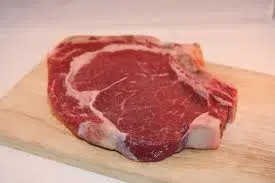April 29th, 2020- Meat options at Illinois grocery stores could be limited after plant closures prompted by the spread of COVID-19.
Illinois Farm Bureau officials said consumers can expect to see fewer meat options at supermarkets and grocery stores. Bureau officials said concerns about COVID-19 are causing problems with the food supply chain, which could also affect food pantries.
The disruptions come as President Donald Trump prepares to use the Defense Production Act to keep meat processing plants open, according to media reports.
Gov. J.B. Pritzker said Monday that public health officials and the Illinois Department of Agriculture were monitoring food chain issues and supply concerns.
“I don’t currently believe that we’re going to have a problem with our supply chain, but we’re watching it very closely,” Pritzker said.
Some large meat processing plants have closed in recent weeks due to the spread of COVID-19.
Illinois Farm Bureau Vice President Brian Duncan said the disruption in the food supply was the result of health concerns for workers and changes in demand from reduced restaurant activity.
“How do we make sure that we can find other kinds of protein to bring into the foodbank so people have protein?” Molitoris said.
Duncan said consumers should prepare to adapt. He suggested learning how to process certain products at home.
“So buying the whole chicken and cutting it into pieces instead of getting a chicken that’s already cut up,” Duncan said. “I think it will be hopefully a short-term disruption as far as choice and some of the availability, I think.”
Trump is preparing to implement the Defense Production Act to keep meat processing plants open, according to reports.
U.S. Rep. Rodney Davis, R-Taylorville, said if that’s the case, worker health must be paramount.
“To make sure that the [personal protective equipment] and the workforce and the materials are there to protect those workers,” Davis said. “Clearly if that’s the case that’s going to address a lot of our concerns about production shortages.”

